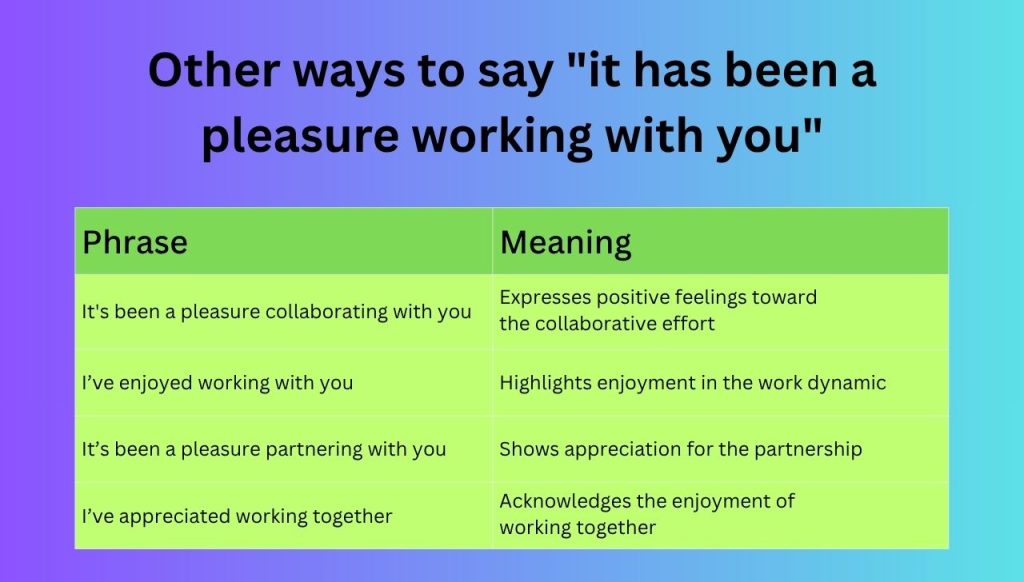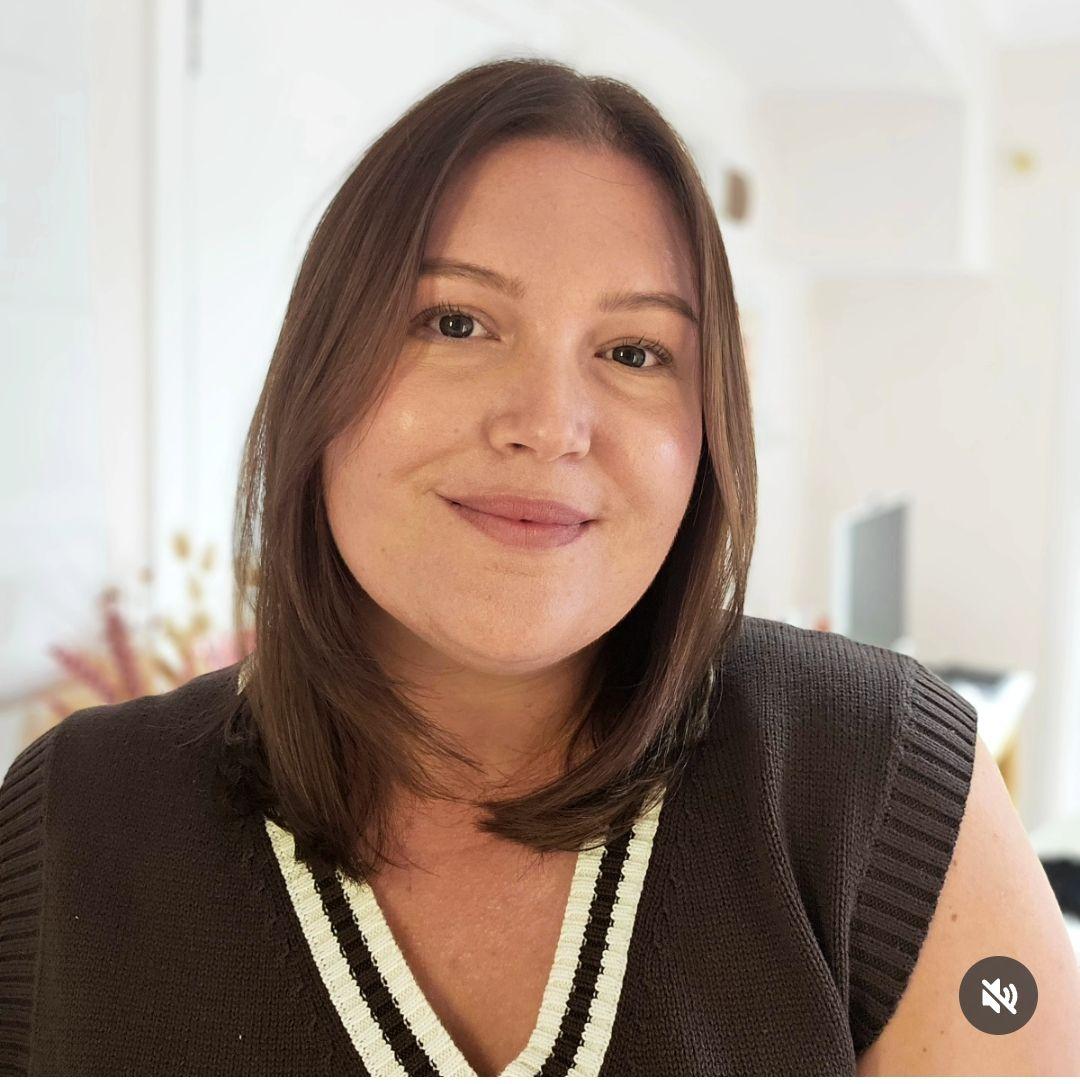You know that moment—the project wraps up, the emails slow down, and you want to leave a good impression. You write your last message, and your fingers hover over the keyboard. “It has been a pleasure working with you” feels… safe. Polite, sure. But maybe too routine?
You’re not alone if you’ve ever wanted to say something warmer, more original, or just a touch more human. Whether you’re finishing a freelance gig, changing departments, or wrapping up a collaboration, how you say goodbye matters. Let’s explore some meaningful alternatives with the same sentiment but a little more personality.
“It Has Been a Pleasure Working With You” Meaning
At its core, this phrase is a formal yet friendly way to show appreciation. It signals mutual respect, a positive experience, and goodwill for the future. You’re essentially saying: “I enjoyed our collaboration, and I value the time we spent working together.”
It’s often used in professional contexts—emails, meetings, handover documents—to add a human touch at the end of a working relationship. Think of it as a polite sign-off that still conveys warmth.
Check This Out: 30 Other Ways to Say “Please Be Advised” (With Meaning, When & Why to Use It)
When to Use “It Has Been a Pleasure Working With You”
Timing and context matter. Here are a few typical moments when this phrase (or one of its alternatives) fits like a glove:
- At the end of a successful project
- When leaving a job or changing teams
- Wrapping up a freelance or contract assignment
- After a collaborative workshop or training
- When transitioning responsibilities to someone else
In short, any time you’re professionally parting ways with someone—especially after a positive or impactful experience.
Why Say “It Has Been a Pleasure Working With You”
So, why not just say “Thanks” and be done with it?
Because relationships matter. And gratitude, when expressed sincerely, builds bridges for future opportunities. A thoughtful goodbye can reinforce your brand, make someone feel appreciated, and open doors. Plus, people remember how you made them feel—not just what you accomplished together. Saying something kind and genuine at the end of a working relationship can have ripple effects.

Other ways to say “it has been a pleasure working with you”
| Phrase | Meaning |
|---|---|
| It’s been a pleasure collaborating with you | Expresses positive feelings toward the collaborative effort |
| I’ve enjoyed working with you | Highlights enjoyment in the work dynamic |
| It’s been a pleasure partnering with you | Shows appreciation for the partnership |
| I’ve appreciated working together | Acknowledges the enjoyment of working together |
| It’s been a joy working alongside you | Conveys happiness about the working experience |
| It’s been a privilege working with you | Highlights the honor and privilege of working together |
| I’ve enjoyed our collaboration | Appreciates the collaborative process |
| It’s been great working together | Acknowledges the effectiveness of teamwork |
| It’s been wonderful working with you | Conveys how pleasant the experience was |
| I’ve loved working with you | Shows a strong positive feeling toward the work done together |
| It’s been a fantastic experience working with you | Highlights how rewarding the experience was |
| I’m grateful for our time working together | Expresses gratitude for the opportunity to work with the person |
| It’s been a delight collaborating with you | Shows enthusiasm for the work partnership |
| It’s been a great experience working together | Highlights how enjoyable the experience was |
| I’ve really appreciated our work together | Shows appreciation for the collaborative effort |
| I’ve had a great time working with you | Emphasizes the good time had while working together |
| It’s been a pleasure to team up with you | Indicates the pleasure in teaming up for a project |
| It’s been a rewarding experience working with you | Highlights the rewarding nature of the experience |
| I’ve really enjoyed our teamwork | Appreciates the effective teamwork |
| I’m so glad we got to work together | Indicates happiness about the collaboration |
| It’s been an honor working with you | Expresses gratitude for working together |
| I’m thankful for our partnership | Highlights appreciation for the collaboration |
| I’ve appreciated your cooperation | Indicates enjoyment of the work experience |
| It’s been a joy to work with you | Acknowledges the memorable and fun experience |
| I’ve had an amazing time collaborating with you | Shows gratitude for the opportunity to collaborate |
| It’s been a memorable experience working with you | Emphasizes the productive nature of the collaboration |
| I’m grateful for the opportunity to work with you | Acknowledges learning and growth through teamwork |
| I’ve enjoyed our productive work together | Expresses gratitude for the shared ideas |
| I’ve learned a lot from working with you | Expresses appreciation for the learning experience |
| It’s been a pleasure exchanging ideas with you | Highlights the enjoyable experience of working together |
Check This Out: 30 Other Ways to Say “Enjoy Your Weekend” (And When to Use Them)
Conclusion
There’s something powerful about ending a collaboration on a kind, thoughtful note. Whether keeping it professional or letting some personality shine through, your parting words can leave a lasting impression.
So next time your fingers hover over the keyboard, consider reaching for a phrase that sounds more you. A little warmth goes a long way—and who knows? That final message might just be the beginning of your next great opportunity. Because sometimes, “It has been a pleasure working with you” is exactly right. But other times? A bit of creativity, sincerity, or even humor says it better.

Grammar Nerd, ESL Trainer, Low-Key Comma Crusader
Daniel has taught English for over a decade, from small community classes in Oaxaca to bustling university halls in London. He has a knack for turning even the driest grammar points into relatable, real-life language tools—think fewer red pens, more real talk. He co-founded Grammation to make grammar less gatekeeper-y and more global. When he’s not decoding sentence structures, he’s probably hiking with a paperback novel or adding unnecessary hyphens for fun.
“The rules of grammar should empower people—not trip them up.”


